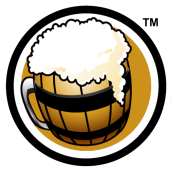Hops
|
Amount
|
Variety
|
Cost
|
Type
|
AA
|
Use
|
Time
|
IBU
|
Bill %
|
|
0.75 oz |
Columbus0.75 oz Columbus Hops |
|
Leaf/Whole |
15 |
Boil
|
90 min |
17.91 |
42.9% |
|
1 oz |
Columbus1 oz Columbus Hops |
|
Leaf/Whole |
15 |
Boil
|
10 min |
8.09 |
57.1% |
|
1.75 oz
/ $ 0.00
|
Hops Summary
|
Amount
|
Variety
|
Cost
|
IBU
|
Bill %
|
|
1.75 oz |
Columbus (Leaf/Whole) 1.749999995997 oz Columbus (Leaf/Whole) Hops |
|
26 |
100% |
|
1.75 oz
/ $ 0.00
|
Mash Guidelines
|
Amount
|
Description
|
Type
|
Start Temp
|
Target Temp
|
Time
|
|
9 gal |
|
Infusion |
-- |
154 °F |
60 min |
|
10 gal |
water at 172 |
Sparge |
-- |
156 °F |
5 min |
Starting Mash Thickness:
1.36 qt/lb
|
Other Ingredients
|
Amount
|
Name
|
Cost
|
Type
|
Use
|
Time
|
|
0.10 oz |
cloves
|
|
Spice |
Secondary |
7 min. |
|
2 oz |
dried orange peel
|
|
Spice |
Secondary |
7 min. |
Target Water Profile
Jardine Water Plant
Notes
Use large grain muslin bags for hops since they are whole cone. Remove at end of boil so whirlpool works correctly. This is why post boil pre-chill time is listed as 0 minutes even though we will whirlpool for 10 and rest for 10.
Starter: pour 0.5 L water to flask, add 11.4 oz of DME and yeast nutrient, stir until dissolved. Add water to 1.25 L, heat until pasteurized. When liquid temperature has come to room temperature pour 2 vials of yeast into flask. Cover and spin at room temperature for as long as possible.
Add honey and molasses 48 hours after pitch, when full kreusen will have been established. The lag phase will have ended and there will have been a day and a half of the exponential phase. We are starting with enough yeast for 1.071 OG, which is what the wort will be at pitch. This will ensure that the yeast present during lag get the full benefit of lag and are healthy (if we added the amount of yeast we need for the full 1.079. beer we are making to wort that is only 1.071 there won't be enough nutrient for each cell and they will be less healthy, this is what over-pitching refers to). After the beginning of the exponential phase there will be enough yeast cells to handle the addition of the honey and molasses; they will have gotten a good start on the complex malt sugars, especially maltose, and will not selectively ferment the simple sugars from the honey and molasses. This protects the fermentation from the problems that can arise from adding a significant amount of sugar adjuncts to the malt and will get the beer to the right FG (not too sweet) while maintaining the honey and molasses notes.
Add an oz of bitter dried orange peel and an oz of sweet dried orange peel to a muslin bag to secondary. Make a tea with 3 cloves and add it to secondary as well, with the hops in a muslin bag. Taste frequently and pull when desired clove flavor has been achieved. Cloves are very strong and can easily overwhelm and even ruin a beer.

Last Updated and Sharing

- Public: Yup, Shared
- Last Updated: 2018-01-01 22:43 UTC
For quick copying and pasting to a text based forum or email.
Click the Download as HTML file button below.
Recipe costs can be adjusted by changing the batch size. They won't be saved but will give you an idea of costs if your final yield was different.
|
Cost $ |
Cost % |
| Fermentables |
$ |
|
Steeping Grains
(Extract Only) |
$ |
|
| Hops |
$ |
|
| Yeast |
$ |
|
| Other |
$ |
|
| Cost Per Barrel |
$ 0.00 |
|
| Cost Per Pint |
$ 0.00 |
|
| Total Cost |
$ 0.00 |
|
Discussion about this recipe:
